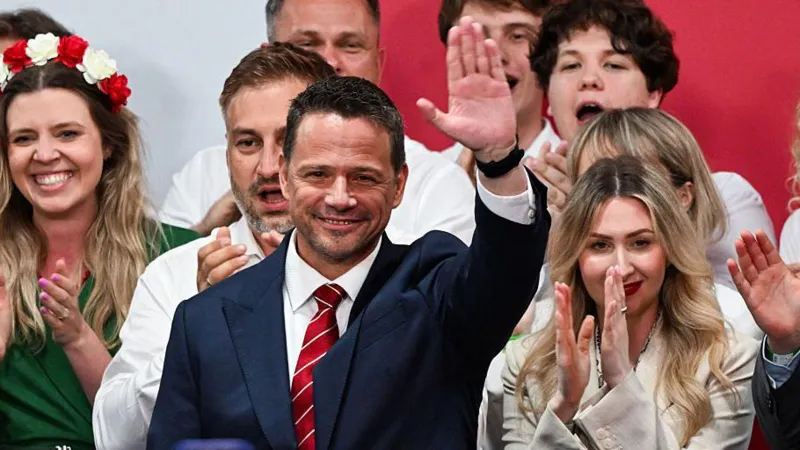Conservative historian and political figure Karol Nawrocki has emerged victorious in Poland’s tightly contested 2025 presidential election, defeating the liberal mayor of Warsaw, Rafał Trzaskowski, by a margin of less than two percentage points.
According to the final results announced by the Państwowa Komisja Wyborcza (PKW), Poland’s National Electoral Commission, Nawrocki won 50.89% of the vote, while Trzaskowski secured 49.11%. The outcome represents a stunning reversal from early exit polls, which had predicted a slight lead for Trzaskowski, showing him at 50.3% against Nawrocki’s 49.7%.
Trzaskowski, who is affiliated with the pro-European Civic Platform party, initially declared victory on Sunday night, telling a cheering crowd, “We won, although the phrase ‘razor’s edge’ will forever enter the Polish language and politics.” His wife, Małgorzata Trzaskowska, added with a nervous smile, “I’m close to having a heart attack.”
However, Nawrocki, 42, who previously served as the head of the Institute of National Remembrance, urged calm as results trickled in. “Let’s not lose hope for this night,” he said. “We will win during the night. The difference is minimal. I believe we will wake up tomorrow with President Karol Nawrocki.”
Nawrocki is known for his strong stance on Polish historical identity, conservative values, and alignment with right-wing political ideology. His victory is seen as a significant moment for the Law and Justice party (PiS), despite running as an independent, given his ideological closeness.
Also Read; Brazil Takes BRICS Leadership Amid Global Shifts
This election result may set up political friction with the current government led by Prime Minister Donald Tusk, a centrist and former president of the European Council. With Poland’s president holding veto power, Nawrocki could play a decisive role in shaping or blocking reforms, particularly in areas such as judicial independence, media freedom, and relations with the European Union.
International observers, including analysts from Freedom House, say the vote reflects growing political polarization in Poland, especially between urban and rural voters, and between pro-European and nationalist forces.
Nawrocki is set to take office on August 6, succeeding outgoing President Andrzej Duda, who has served two terms since 2015.
The result marks not only a personal victory for Nawrocki but also signals a broader shift in Poland’s political landscape—potentially redefining its stance on EU integration, democratic reforms, and national memory debates.







